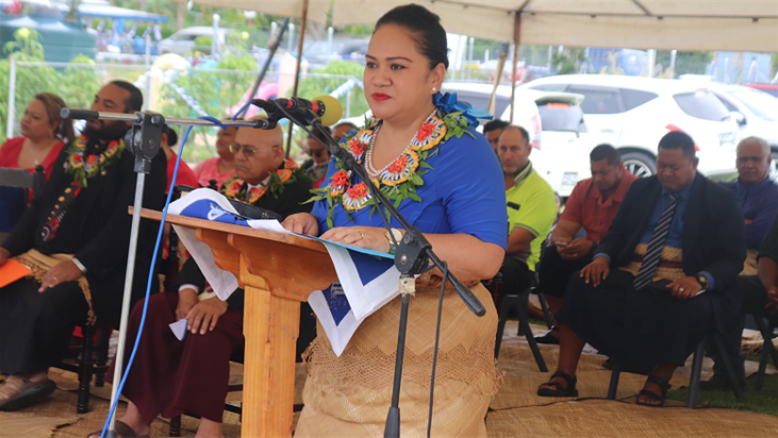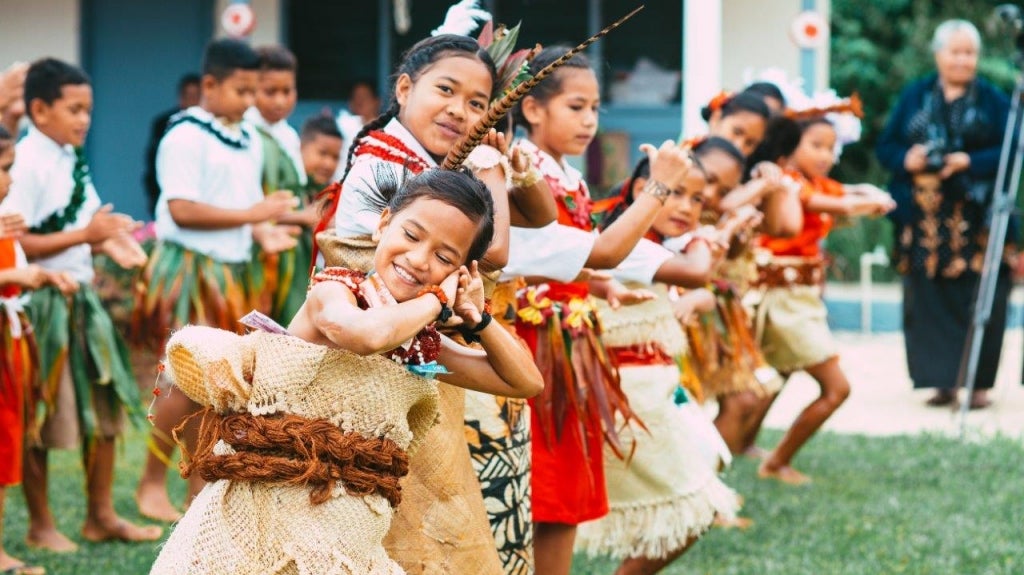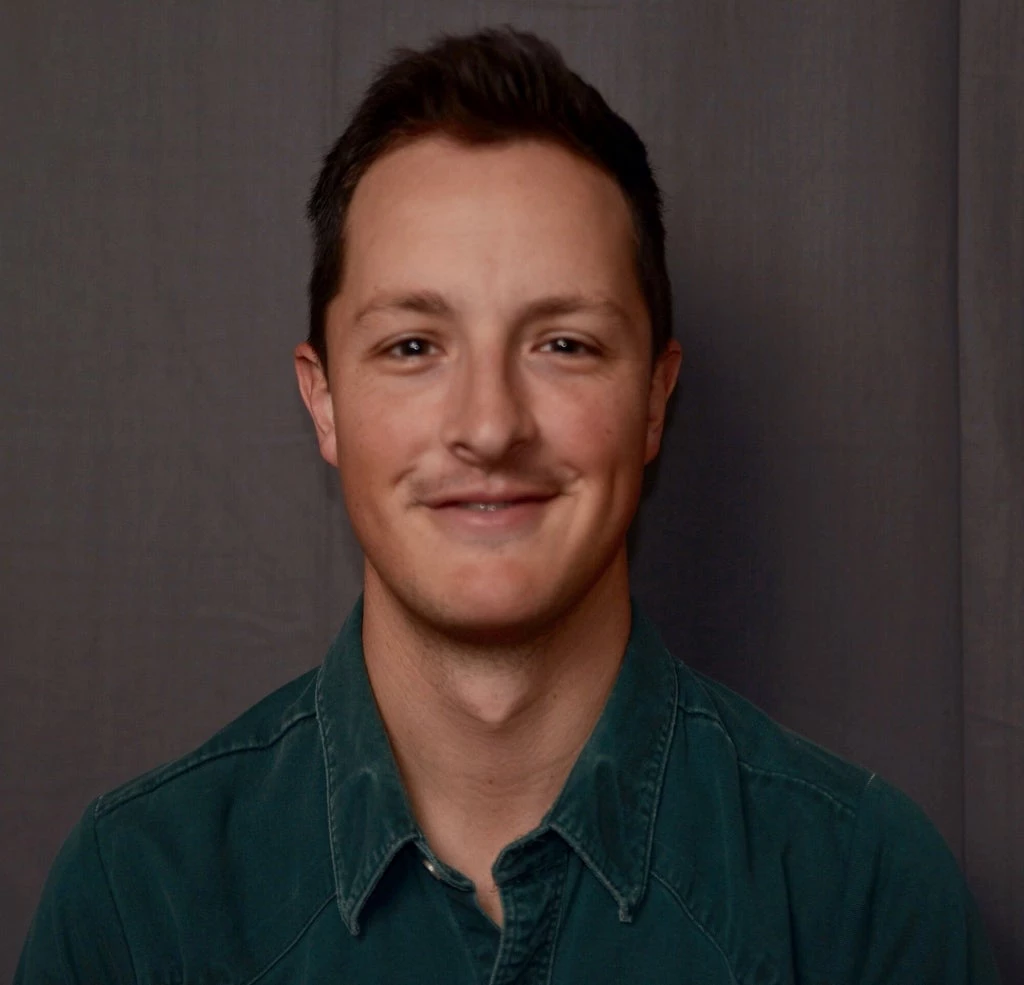 Natalia Latu speaking at school ceremony
Natalia Latu speaking at school ceremony
2020 marks 35 years of the World Bank’s partnership with the Kingdom of Tonga in the South Pacific. Since 2015, the World Bank has more than tripled the size of its program in Tonga. In this Q&A, Natalia Latu, the World Bank’s Liaison Officer based in Nuku'alofa, shares memories of growing up in Tonga, and how her country is forging its own development path.
What was your childhood like in Tonga?
Fun. I'm the middle child, and I'm lucky in that sense – I was always the 'third-wheel' in the family, and so, in a way, I got to do what I wanted to do without too much attention or people worrying about what I was up to! (laughs)
Between my home and the school I attended, there was this big plot [of land]; and it was full of guava trees. And I would just scavenge there, every day – with my friends, just hanging out. I didn't play any sports or anything, I just enjoyed those guava trees all the time with the neighborhood kids. And guavas have a special place in my heart now!
My parents play a huge role in my life. They were both civil servants. In particular, my father; was a CEO in several government ministries and they both worked very hard to provide for us. But one thing I really remember of growing up is that there were always other people at home – we had family, who'd often come in from the outer islands to live with us here in the capital.
Why is that – being raised by the extended family, or within the community, the village – so important in the Pacific?
It's part of our culture. With it, it brings a lot of values that I think are good. For instance, you have to share a lot of things, you have to be mindful of others; considerate. And it just opens up your perspectives on life, because it's a community-based approach to the world.
There's a saying: "It takes a village to raise a child"; and it's very important because everyone around you has an influence on you. And I think that helps to build the character of a child.
So I was lucky that I grew up in a similar situation. Sometimes I didn't like it, but you learn from it and look at it from a different perspective as you get older.
How would you describe Tonga to someone who doesn't know much about it?
Tonga's in the South Pacific. There are only 100,000 of us, so there's not that many of us! It's a very small country, even compared to our neighbors here in the Pacific. We're part of Polynesia; so that has a distinct cultural aspect. We like to say that this is where time begins.
It's very community-based, faith-based, and family-based. It's a great place to raise children. Tonga's still very safe. But times have changed – the influence of technology and international travel. But I think that's one of the challenges that Tonga is facing: being able to manage and welcome change in a way that is appropriate for Tonga.
How do we differentiate Tonga from other Pacific Island countries? Tonga is unique – we could strive to have beautiful hotels, 5-star resorts, etcetera; but we don't have that, and I think that's what makes Tonga different. We're very untouched. So one of the key challenges we face is ensuring increasing development is done sustainably and in a way that is friendly to our environment.
Tonga is the only remaining Kingdom in the Pacific – we have a democratic monarchy with our first democratic elections held only in 2010. Though our culture has evolved to accommodate the tides of change, we are very proud of our culture and how it has made us unique.
If you come to Tonga you see the men wearing the ta'ovala, a mat wrapped around their waist. It is the most visual symbol of our Tongan culture and it represents the four main principles we strive to live by culturally: respect, humility, reciprocity, and patriotism.
The kiekie is the convenient everyday version, worn by women. As navigators, returning after their voyage would come to address the King. Having worn and torn clothes they would use the mast of their vessel to cover themselves and make themselves decent and presentable to the King. Hence the ta'ovala/kiekie worn around the waist was seen as a symbol of respect. And it's in the Tongan Code Of Conduct for civil servants to wear these in public places and in the office.
And in the context of development, it shows that we respect the land. And therefore we are reminded every day, by wearing the ta'ovala or the kiekie, that we have to do things that are going to benefit us today, but also our future generations.
What makes you most proud of being a Tongan?
My culture, and how it has evolved over time.
…and the humpback whales that migrate through Tonga each year. Seeing them is a majestic feeling. You're nothing in comparison to the whale. You are in their space, their home. It's one of those experiences that is just unreal. They're humungous, they could do something that could hurt you. But they don't. It's the feeling that you're in their world.

How did you come to work at the World Bank?
From a young age we were taught to serve – our family, church, community – and so naturally, the civil service was where I ended up. After 13 years at the Ministry of Finance, I grew an appreciation of the different roles there; but also from a birds' eye view of the economy and how everything falls into place. I always had this passion within me to see how I best I can contribute.
Because I spend a lot of time away from my family and children at work, I try to make sure whatever it is I am doing is worth my time being away from them. I won't be around to see all their milestones but knowing I have made a contribution to the Tonga they will grow up in, gives me comfort. Personally, I like to think, when I do something, I want to give it my all; if not, none at all.
Being at the Ministry, I had the ability to influence policy and have an impact on people's lives. I always treat that with a lot of respect and humility.
And when the opportunity came up at the World Bank, I was fascinated by the opportunity to be exposed to a global organization with international knowledge and expertise. The uniqueness of this role is that I'm able to see things that only a Tongan would see – and this is where culture and communication come into play. And this is where I work with [World Bank] staff from all over the world who bring their own perspective. And bridging across both worlds has made me more aware of simple things: accents, words – and how they can influence and be seen in different ways.
How has the World Bank's program changed in Tonga in recent years?
I think the relationship has evolved significantly. Tonga has now been a member of the Bank for 35 years, and since that time our portfolio has grown and diversified, and we have now tripled our footprint over the past five years (under IDA18 and IDA19).
Through our local presence, we have strengthened our partnership. This also comes at a time when Tonga faces significant challenges – in addition to COVID-19 and its impacts on the health system and economy, is climate change and natural disasters.
Given the volatility of the world, I like to think that through this office, we are better placed to bring global expertise and resources directly to Tonga and enable us to work faster and more collaboratively with the client and vice-versa.
During my short time with the Bank, I have grown to appreciate the knowledge and research role of the Bank and how much it has to offer. We're evidence-based and I'm quite proud to be involved in that way of doing business.
Given the resources and knowledge available to Tonga, the Bank has been instrumental and will continue to be in Tonga's development into the foreseeable future.
What's your big vision for Tonga's future? What's possible?
I've grown more interested in education – through the Skills & Employment for Tongans (SET) Project and the Pacific Resilience Program (PREP), for example – and I draw from my own personal experience. My parents worked hard and prioritized education for us.
Because we're a small country, we don't have a lot of minerals or resources. But our people are our biggest asset. And that's why education is such an important investment. If you equip the next generation with knowledge, anything is possible.



Join the Conversation